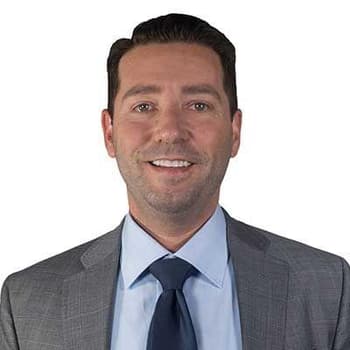No Insurance
Written by Melissa Carmona
& Medically Reviewed by Sam Rosenthal
Medically Reviewed
Up to Date

Rehab Options in Washington and Oregon Without Insurance
High unemployment rates, mental health concerns and rising substance use have made affordable addiction treatment more vital than ever in Washington and Oregon.
Because of the ongoing pandemic, millions of people face financial struggles and declining mental health. In June, around 40% of surveyed Americans reported experiencing one or more adverse mental health conditions, such as depression or anxiety. In a recent survey by The Recovery Village, 53.3% of mental health professionals reported clients were beginning or increasing their use of substances like drugs or alcohol to cope.
Washington had a peak unemployment rate of 16.3% in April, which dropped to 10.3% in July. Compared to February’s unemployment rate of 3.8%, however, the numbers are still staggering. Oregon’s rates are similar, with 14.9% in April that dropped to 10.4% in July. The state’s unemployment is also much higher than February’s rate of 3.3%.
Unemployment means a loss of income and usually the loss of health insurance. Because many people are scraping by with less money, leading to declining mental health and increased substance use, access to affordable care is more important than ever. Fortunately, there are a variety of options for drug counseling and rehab programs that are free or low-cost.
State-Funded Rehab Programs
Public, state-funded drug rehabs in Washington and Oregon typically provide treatment services that cost less than private facilities. These locations can provide life-saving treatment and assist with long-term recovery but may lack many of the quality-of-life amenities that private rehab treatment offers.
Financial assistance for drug rehab may come through Medicaid, COBRA programs, HealthCare.gov marketplace plans, or state-issued funds or grants. In cases where treatment is not free or covered by the state, patients can sometimes pay on a sliding scale that uses their income to calculate an affordable payment.
Grant and Loan Programs
SAMHSA provides most states with drug rehab grants that help fund addiction treatment resources and recovery services. In many cases, these funds allow low-income individuals to afford the life-saving treatment they need. The Washington State Health Care Authority (HCA) recently secured $4 million in federal funds for substance use disorder treatment and crisis counseling support in the wake of the COVID-19 pandemic.
Additionally, many facilities offer drug rehab loans or payment plans, which give clients a way to attain otherwise unaffordable treatment by making small payments over an extended period of time.
Free Rehab Centers in Washington and Oregon
One way to find free or low-cost inpatient drug rehab centers is to contact the SAMHSA National Helpline. Calling the 24/7 hotline connects people seeking treatment with references to local resources and facilities in line with financial needs. SAMHSA’s treatment locator tool can also narrow down nearby locations based on types of payments accepted, treatment programs offered and more.
Nonprofit, religious or community-based organizations, such as the King County Behavioral Health and Recovery Division, are also great resources for low-cost rehabilitation services. These care providers are often committed to providing low-income patients with accessible and affordable addiction treatment through state-funded or charity-based means.
Teletherapy or Online Rehab
Telehealth in Washington, Oregon and the rest of the country has been growing in popularity. Online counseling services, treatment programs and support groups can provide guidance, support and accountability from the comfort of your home.
It’s important to note that not all teletherapy platforms specialize in addiction treatment. The Recovery Village Ridgefield’s telehealth app focuses primarily on treating substance use disorders and co-occurring conditions. Our professional counselors and addiction specialists can provide you with affordable, evidence-based care that helps promote long-term recovery and healing.
Teletherapy or Online Rehab
If you need therapy but are concerned about cost, local resources can provide free or low-cost services. While it may be difficult to think of paying for treatment when money is tight, maintaining an addiction is much more expensive — financially, physically and emotionally.
If you or a loved one is ready to begin the path toward a healthier, drug-free life, The Recovery Village Ridgefield is here to help. Contact us today to learn about affordable options, treatment programs and recovery resources to suit your needs and budget.
Sources
Centers for Disease Control and Prevention. “Mental Health, Substance Use, and Suicidal Ideation During the COVID-19 Pandemic — United States, June 24–30, 2020.” Morbidity and Mortality Weekly Report, August 14, 2020. Accessed September 17, 2020.
U.S. Bureau of Labor Statistics. “Washington.” September 15, 2020. Accessed September 17, 2020.
U.S. Bureau of Labor Statistics. “Oregon.” September 15, 2020. Accessed September 17, 2020.
Washington State Health Care Authority. “Need for behavioral health services anticipated to grow during COVID-19 pandemic; HCA secures funding to significantly expand services.” May 7, 2020. Accessed September 17, 2020.
View Sources
Centers for Disease Control and Prevention. “Mental Health, Substance Use, and Suicidal Ideation During the COVID-19 Pandemic — United States, June 24–30, 2020.” Morbidity and Mortality Weekly Report, August 14, 2020. Accessed September 17, 2020.
U.S. Bureau of Labor Statistics. “Washington.” September 15, 2020. Accessed September 17, 2020.
U.S. Bureau of Labor Statistics. “Oregon.” September 15, 2020. Accessed September 17, 2020.
Washington State Health Care Authority. “Need for behavioral health services anticipated to grow during COVID-19 pandemic; HCA secures funding to significantly expand services.” May 7, 2020. Accessed September 17, 2020.
Authorship






